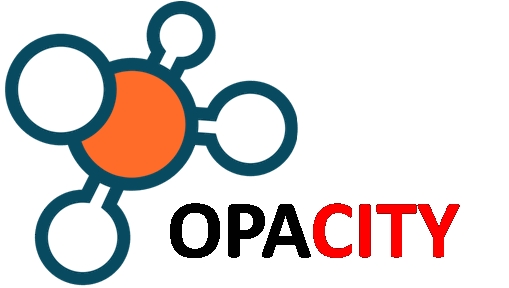Description

Abacus

Opacity

Volopay
Comprehensive Overview: Abacus vs Opacity vs Volopay
To provide a comprehensive overview of Abacus, Opacity, and Volopay, let's delve into each product's primary functions, target markets, market positioning, and key differentiating factors.
Abacus
a) Primary Functions and Target Markets
- Primary Functions: Abacus is an expense management platform that automates the expense reporting process. It offers real-time expense reporting, policy enforcement, and integrations with various accounting software.
- Target Markets: Its primary users are small to medium-sized businesses (SMBs) and enterprises looking to streamline their expense management processes.
b) Market Share and User Base
- While specific market share figures are not publicly detailed, Abacus is considered a competitive player in the expense management space. It appeals to businesses looking for real-time processing and policy compliance features.
c) Key Differentiating Factors
- Real-time expense reporting and automatic policy enforcement are standouts.
- Integration flexibility with a variety of accounting systems, like QuickBooks and Xero.
- A user-friendly mobile interface enhances on-the-go expense management capabilities.
Opacity
a) Primary Functions and Target Markets
- Primary Functions: Opacity is a cloud storage service that prioritizes privacy and security. It provides end-to-end encrypted storage and sharing options without requiring personal information for account creation.
- Target Markets: It targets individuals and businesses that value privacy and are concerned about data surveillance and breaches.
b) Market Share and User Base
- Opacity is a niche player in the larger cloud storage market. It attracts users from sectors where data privacy is of utmost importance, though it operates on a much smaller scale compared to giants like Google Drive or Dropbox.
c) Key Differentiating Factors
- Privacy-centric model with end-to-end encryption ensures that data is accessible only to the user.
- No personal information requirement aligns with users looking for anonymity.
- Competitive pricing for privacy-forward consumers.
Volopay
a) Primary Functions and Target Markets
- Primary Functions: Volopay offers comprehensive spend management solutions, including virtual cards, expense reports, bill payments, and automated accounting.
- Target Markets: It primarily targets startups and SMEs in the Asia-Pacific region seeking to optimize their financial operations and cash flow.
b) Market Share and User Base
- Volopay is expanding rapidly in the Asia-Pacific landscape. While precise user numbers are challenging to ascertain, it has received attention for its all-in-one spend management approach in rapidly growing markets.
c) Key Differentiating Factors
- Integration of multiple financial tools into a single platform, offering everything from expense management to credit facilities.
- Strong emphasis on serving high-growth startups with tailored financial solutions.
- Robust analytics and reporting capabilities give businesses better financial visibility and control.
Comparison and Conclusion
- Market Positioning: Abacus serves the expense management segment, focusing on automation and policy compliance in a broader business landscape. Opacity focuses on privacy and security in cloud storage, catering to a niche but important market demographic. Volopay targets startups and SMEs needing an integrated approach to spend management, particularly in the Asia-Pacific region.
- Differentiation: Abacus is strong in real-time automation, Opacity is distinguished by its privacy-first approach, and Volopay combines multiple financial functions, propelling SME and startup growth with its wide range of tools and services.
Overall, each product appeals to specific segments and preferences within the business and technology environment, utilizing unique features tailored to their target audiences.
Contact Info

Year founded :
2021
Not Available
Not Available
Not Available
Not Available

Year founded :
Not Available
Not Available
Not Available
France
Not Available

Year founded :
2020
+65 8535 4016
Not Available
Singapore
http://www.linkedin.com/company/volopay
Feature Similarity Breakdown: Abacus, Opacity, Volopay
As of my last update in October 2023, Abacus, Opacity, and Volopay are financial management tools with distinct purposes and features but share some commonalities. Here's a feature similarity breakdown based on my understanding of these types of tools:
a) Core Features in Common:
-
Expense Management:
- All three platforms offer capabilities to manage and track expenses efficiently, including receipt capture and categorization.
-
Real-time Data Synchronization:
- They provide real-time updates and synchronization of financial data to ensure that all transactions are current.
-
Budgeting Tools:
- Each platform includes functionalities to set budgets, monitor spending against these budgets, and provide alerts for any discrepancies or overspending.
-
Approval Workflows:
- They have systems for approving financial transactions and expenses, which includes multi-level approvals to streamline processes.
-
Integration Capabilities:
- Integration with accounting software and other third-party financial tools is a common feature, making it easier to consolidate financial data.
b) Comparison of User Interfaces:
-
Abacus:
- Known for its user-friendly approach, Abacus offers an intuitive interface that emphasizes ease of navigation and straightforward user interaction.
- The design is often described as clean and simple, allowing users to quickly access needed features without excessive clutter.
-
Opacity:
- Opacity might offer a more minimalistic and privacy-focused interface, reflecting its core feature of secure data handling.
- The user experience may be streamlined to focus heavily on data encryption and privacy, which can appeal to users needing secure transactions.
-
Volopay:
- Volopay typically has a modern and dynamic interface, incorporating visuals like dashboards that allow for quick insights into financial data.
- The design tends to cater to businesses looking for an expansive view of their financial health, integrating spending analytics prominently.
c) Unique Features:
-
Abacus:
- One unique feature of Abacus might be its real-time expense reporting, which allows employees to report expenses on-the-go and for managers to make instant decisions.
- Abacus may also include features focusing on corporate card reconciliation and advanced AI for expense categorization.
-
Opacity:
- Opacity places a strong emphasis on security and privacy, offering features such as zero-knowledge end-to-end encrypted storage for financial information.
- Unique tokenization process for transactions, ensuring that sensitive information is protected.
-
Volopay:
- Volopay is specifically known for its corporate cards, offering businesses the ability to issue and manage multiple cards with customized spending limits.
- It often includes advanced spend analytics and insights, which help companies make data-driven financial decisions.
- Additionally, Volopay can focus heavily on cash flow management, providing tools for managing payables and receivables internally.
Each of these tools caters to different niches or aspects of financial management, offering a range of features from simple expense tracking to complex financial analytics and secure data management. When choosing a solution, businesses usually prioritize based on specific needs like ease of use, security, or comprehensive financial oversight.
Features

Integration
Expense Management
Security
User Management

Secure File Storage
User-Friendly Interface
Privacy First

Not Available
Best Fit Use Cases: Abacus, Opacity, Volopay
Let's explore the best fit use cases for Abacus, Opacity, and Volopay by examining their strengths, features, and optimal scenarios for use:
Abacus
a) For what types of businesses or projects is Abacus the best choice?
- Expense Management Needs: Abacus is an ideal solution for businesses that need real-time expense reporting and management. It automates expense workflows, making it suitable for companies looking to streamline their expense processes.
- Dynamic Teams: Companies with dynamic and mobile teams can benefit from Abacus, as it offers easy submission of expenses from anywhere.
- Compliance-Focused Organizations: Abacus is well-suited for organizations that prioritize compliance with spending policies because it offers real-time audit controls.
- Small to Medium Enterprises: Its scalability makes it particularly advantageous for small to medium-sized businesses looking for an efficient expense management tool that scales as they grow.
Opacity
b) In what scenarios would Opacity be the preferred option?
- Privacy-Centric Projects: Opacity could be chosen for projects where data privacy is paramount. It provides encrypted storage and the ability to share files anonymously, making it a great choice for privacy-conscious individuals and organizations.
- Decentralized File Storage: Businesses or users interested in decentralized file storage options to ensure data security and privacy might prefer Opacity.
- Tech-Savvy Users: Tech enthusiasts and users who value control over their data and understand blockchain technology would find Opacity appealing.
- Project-Based Collaborations: Teams working on confidential projects or those that require secure sharing of sensitive documents would find Opacity beneficial.
Volopay
c) When should users consider Volopay over the other options?
- Corporate Expense Management: Volopay is particularly beneficial for companies seeking a holistic approach to expense management, corporate card management, and bill payments.
- Cash Flow Management: Businesses looking to optimize cash flow, track spending in real-time, and manage their financial operations from a centralized platform can benefit from Volopay.
- Cross-Border Transactions: Companies that operate in multiple countries and need to handle transactions in different currencies may find Volopay advantageous due to its international capabilities.
- Startups to Mid-Sized Companies: It's suitable for startups and mid-sized companies looking for a comprehensive financial platform that supports growth and expansion.
Catering to Different Industry Verticals or Company Sizes
-
Abacus: Suitable for industries with frequent travel and on-the-go expenses, such as consulting, sales teams, and tech startups. Scales well from small teams to mid-sized businesses.
-
Opacity: Ideal for tech, legal, and finance industries where data security and privacy are non-negotiable. It aligns well with individual users to small teams in need of secure storage.
-
Volopay: Provides value across various sectors including e-commerce, SaaS, and international firms, offering robust features suitable for energetic startups to growing mid-sized enterprises.
Each of these products caters to different needs and priorities, making them optimal for specific scenarios and types of users or companies. Choosing the right one depends on the unique requirements related to expense management, data privacy, or comprehensive financial operations management.
Pricing

Pricing Not Available

Pricing Not Available

Pricing Not Available
Metrics History
Metrics History
Comparing teamSize across companies
Conclusion & Final Verdict: Abacus vs Opacity vs Volopay
When evaluating Abacus, Opacity, and Volopay for their overall value, it's essential to examine each product's strengths and weaknesses in different contexts of user needs and organizational goals. Here's a summarized conclusion and final verdict for each platform:
Abacus
Pros:
- User-Friendliness: Abacus provides a straightforward interface, making it accessible for teams of all sizes.
- Expense Management: It excels in real-time expense reporting and reimbursement, which can streamline internal financial processes.
- Integration: Easily integrates with various accounting software and business tools, ensuring seamless data flow.
Cons:
- Limited Features for Larger Enterprises: While superb for small to medium-sized businesses, its feature set may not fully cater to the complex needs of larger organizations.
- Scalability Concerns: As companies grow, they may outgrow Abacus’s capabilities.
Opacity
Pros:
- Privacy and Security: Opacity provides strong privacy features, such as end-to-end encryption, making it ideal for organizations dealing with sensitive data.
- Storage Solutions: Offers decentralized storage solutions, which are attractive for users concerned with data sovereignty.
Cons:
- Accessibility and Usability: Its focus on security could make it less user-friendly for non-tech-savvy users.
- Limited Features Beyond Privacy: Organizations needing comprehensive financial management tools might find its offerings lacking.
Volopay
Pros:
- Comprehensive Financial Management: Volopay comes with a wide array of financial management tools, from corporate cards to expense management.
- Corporate Expense Solutions: Particularly beneficial for startups and SMEs looking for budgeting and expense tracking capabilities.
- Scalability: Designed to grow with businesses, making it suitable for companies at various growth stages.
Cons:
- Complex Initial Setup: The initial setup might require more time and effort compared to more specialized tools.
- Pricing: May be on the pricier side for small firms with limited budgets.
Conclusion and Recommendations
Best Overall Value
For businesses seeking comprehensive financial management with scalability, Volopay offers the best overall value. It combines a broad set of tools that are essential for managing expenses, budgeting, and scalability, making it suitable for both small startups and growing enterprises.
Recommendations
- Small to Medium-Sized Businesses: If the primary need is real-time expense tracking and simplicity, Abacus could be ideal.
- Privacy-Centric Organizations: Organizations prioritizing data privacy should lean towards Opacity, especially if privacy outweighs the need for extensive financial management features.
- Growth-Oriented Companies: Volopay is well-suited for companies looking for a tool that can adapt and grow with them, thanks to its comprehensive feature set and scalability.
In making a final decision, users should assess their specific needs, such as privacy concerns, ease of use, scalability, and budget, before choosing the tool that aligns best with their organizational objectives.